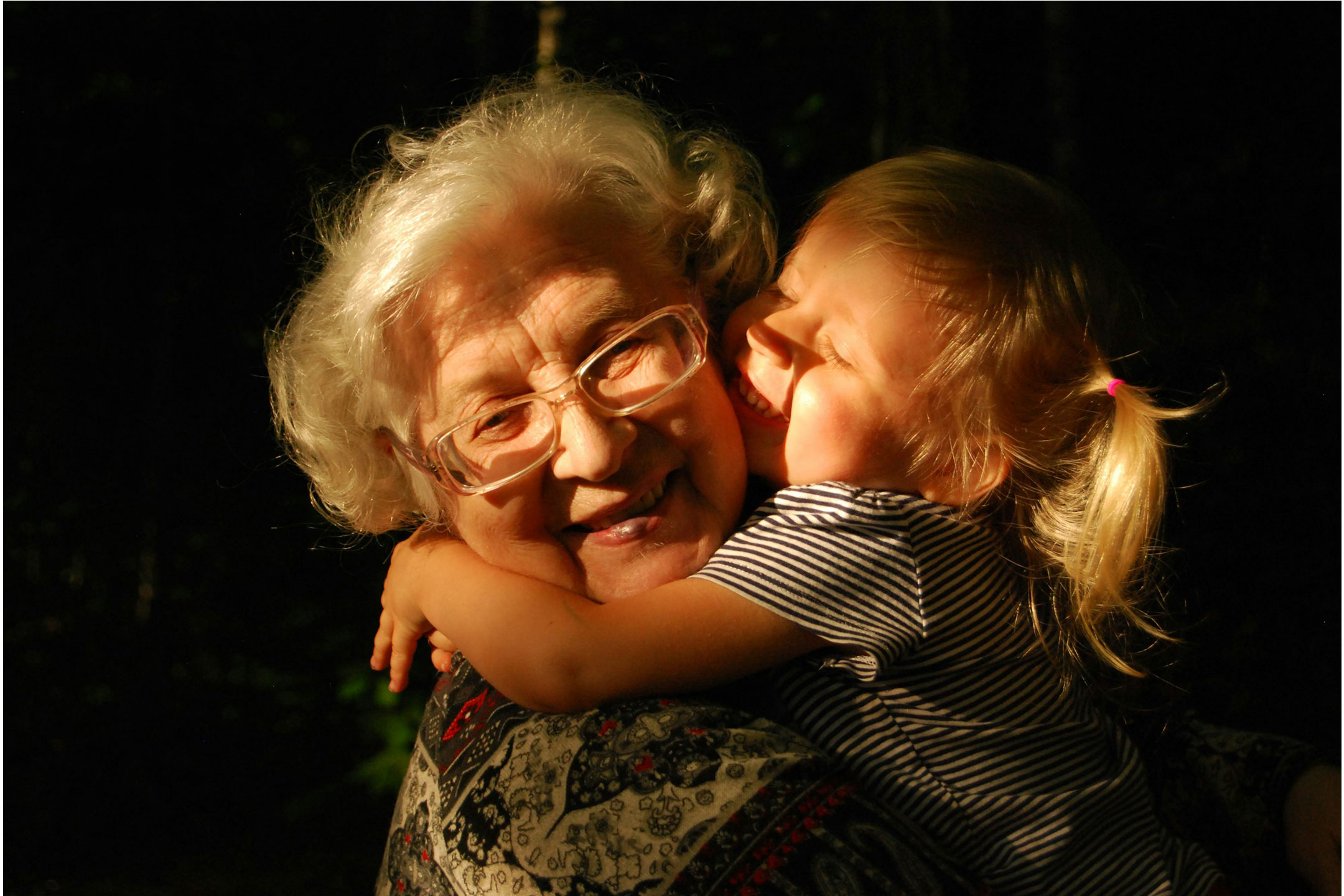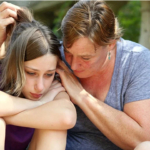
05 Sep “Nanna Isn’t Well… ”
Kylie Ladd writes about family responses to chronic illness in grandparents.
When Julie Anderson’s mother was diagnosed with early Alzheimer’s disease, one of Julie’s first thoughts was of her own daughter. “Mum had been forgetting things and getting a bit muddled for a while, so the diagnosis wasn’t really a surprise,” recalls Julie. “What did worry me, though, was how it would impact her relationship with my six-year-old daughter Olivia. She and Olivia have always been close – Mum’s minded her at least three days a week almost since she was born so I could go back to work, and they just dote on each other. I had no idea how I would tell Olivia that her beloved Nanna might not be able to keep caring for her. Nor did I know how to explain what might happen to my mother – that she might forget things Olivia had told her or act a bit strangely at times – in a way that she would understand.”
No matter how old we are, it is always upsetting when a parent becomes ill. But if you are a parent yourself as well, the distress can be magnified. “My father had quite a severe stroke just a few months ago,” says Louise, the mother of three young children. “Literally overnight, he went from being an active, involved and loving grandfather to a person slumped in a wheelchair, paralysed down one side, unable to speak clearly and often dribbling. My oldest son was absolutely terrified of him. He refused to visit and was clearly horrified and frightened that the Poppa, who had always taken him fishing and played cricket with him, now looked and acted like a stranger. But the worst bit was that I was initially so incapacitated with grief and fear myself that I wasn’t much use at helping Michael adjust.”
Matthew Sanders, Professor of Clinical Psychology and Director of the Parenting and Family Support Centre at the University of Queensland, says that while it may be sometimes tempting to keep bad news from a child, particularly younger ones, the best approach is always to be honest. “The nature of chronic illness is that there will be change or deterioration in the person involved. Children notice these things, and they need a context in which to understand them. Telling a child honestly that their grandparent is unwell helps the child feel more in control of the situation, gives them permission to ask questions or make comments, and explains to them why their own parent may be anxious or distracted. In contrast, silence can be far more frightening and lead the child to imagine things are even worse than they are.”
The way a child reacts to such news will vary depending on their age and relationship with the afflicted adult. Preschool-aged children (three to five years old) have some grasp of the difference between being well and being sick but also frequently believe that they have magical powers that can cause or influence a situation. Andrew Fuller is a clinical psychologist and family therapist. He notes that children of this age often worry that they may have caused a grandparent’s illness, possibly by having disobeyed that grandparent or thinking bad thoughts about them. As such, he advises that it is always best to be clear about how illnesses occur. “Shock and sadness are also normal childhood reactions,” adds Fuller. “And the young child may become fearful or clingy.”
School-aged children (six to 12 years) have a much better comprehension of sickness and even death, but with that comes an increased capacity to worry. Anxiety in this age group may be manifested in changes in eating, sleeping, schoolwork and friendships. Regressions in behaviour may also occur, such as the child returning to thumb-sucking or wanting to take a teddy to bed.
Tony White, a Perth psychologist who has worked with children and families for 20 years, notes that the parent’s response to the situation can be very important at this time. “The first thing a child does when he or she realises that something bad is happening, such as a grandparent being diagnosed with cancer, is to look to their parents and see how they are coping,” says White. “Whilst extremes of grief and anger should be avoided, it is fine for parents to talk about their fear or sadness, or even to cry in front of the child. This is good parenting because the child sees that feelings are okay.”
Before talking to children about illness, adults should make sure they understand the condition themselves so that they can answer questions accurately and honestly and may want to practise what to say. The Cancer Council of NSW advises that children be told the basics using words they can understand, be informed about how this news may affect them (for example, changes to routine), and be encouraged to ask questions.
“The best way to educate children about chronic illness and even death is by using a biological model,” suggests Vera Auerbach, a Sydney-based clinical psychologist specialising in the emotional development of children. “Rather than just say ‘Nanna is unwell’, I encourage parents to make their explanations factual. This helps the child to really grasp what is going on and make sense of what they are seeing. So, for example, if Nanna has had a stroke, I’d say something like, ‘Her brain didn’t get enough air for a while, and now it isn’t working properly’. You can tie it in with talking about the process of ageing and how the body changes and wears out a bit as we get older – that hair goes grey, skin wrinkles, and people can’t walk as fast or see as well. Using the analogy of a favourite toy that has got worn or damaged because of lots of use and love also helps children understand.”
Picture books can be another good way to explain various illnesses to children, and some examples of these are given below. Specific organisations may also be able to provide useful resources. Alzheimer’s Australia, for example, produces a plain-language information sheet about dementia for children of about eight and upwards (available free on request), while the Breast Cancer Network has a website that explains cancer to children.
Grandparents who are unwell can remain involved in family life, though their role may change. Dr Erin Lalor, past CEO of the National Stroke Foundation, says, “Wherever possible, we encourage those who have had a stroke to maintain their level of involvement with their grandchildren… Some activities may need to be substituted, but keeping the contact going is what’s important. With advice from therapists, you can also get children involved with the rehabilitation process. Kids can help Grandpa with his physiotherapy exercises or play word games to improve language skills. It’s a reversal of the usual caregiving roles, but one from which both parties can really benefit.”
Parents can best help their children adjust to a grandparent’s illness by providing lots of reassurance, support and, when requested, information. “Over time, as they process what they’ve been told and notice changes themselves, children are generally going to have more and more questions,” notes Andrew Fuller. Encouraging children to draw pictures or write stories may also help them to express their emotions.
Vera Auerbach has found that after learning of a grandparent’s illness, children commonly fear that their parent will also become unwell. “In this case, it helps to have a truthful but reassuring answer ready,” she says, “such as, ‘I plan to be around for a long time’ or ‘I’m doing everything I can to stay healthy’.” Maintaining the normal family routine as much as possible helps the child feel more secure. In some cases, it may be appropriate to notify the child’s teacher or school counsellor that there is a serious illness in the family so that they will be particularly alert for any changes to school work or personality.
The good news is that while the experience of a grandparent’s illness can be a difficult or frightening one for children, most adjust quickly. “Part of growing up is developing resilience,” says Dr Sanders. “Children can’t and shouldn’t be insulated from unpleasant facts, particularly if it is something occurring close to home. But the vast majority of children get through this situation just fine if the parents are available and reassuring.”
Names of parents and children have been changed.
Kylie Ladd, PhD, is a clinical neuropsychologist specialising in the diagnosis of dementia and co-author of the book Living with Alzheimer’s and Other Dementias (Michelle Anderson Publishing 2006).




